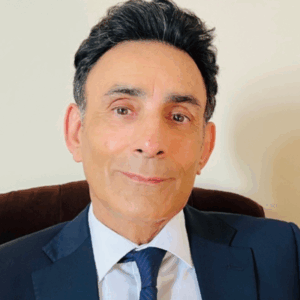

Prescription sedatives can feel like a lifeline when panic attacks, insomnia, or muscle spasms derail daily life. Yet the same pills that calm nerves in the short run can create a powerful trap if taken longer or at higher doses than prescribed. Understanding how benzodiazepines work and why they’re so tough to quit lays the groundwork for safe, effective recovery.
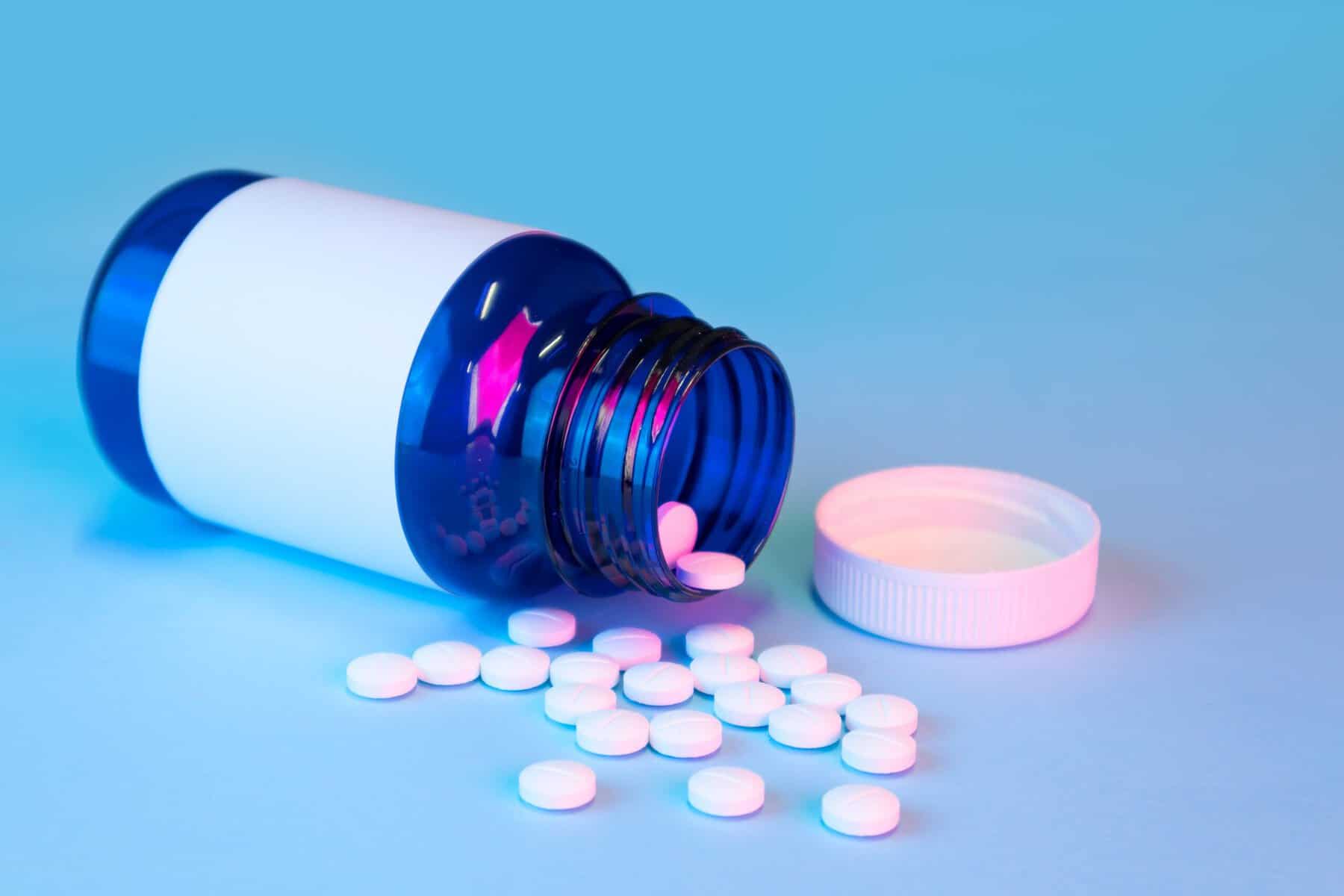
Benzodiazepines (often shortened to “benzos”) are central-nervous-system depressants that enhance the calming effect of the neurotransmitter GABA. Common brands include alprazolam (Xanax) for acute anxiety, clonazepam (Klonopin) for seizure disorders, and diazepam (Valium) for muscle spasms or pre-procedure sedation.
When used exactly as directed, usually for two to four weeks, they can quiet racing thoughts, relax tight muscles, and help people sleep.
Doctors favor them for short-term crises because they act within minutes, but that same speed is also what makes the brain eager for more.

With each dose, benzos amplify GABA, producing a wave of relief. The brain quickly adapts by dialing down its own GABA production, so yesterday’s pill feels weaker today. That tolerance nudges people to take higher doses or dose more often, setting up physical dependence.
Stop suddenly and rebound anxiety, insomnia, tremors, or even seizures can hit within hours—powerful incentives to keep taking the drug.
Over time, the behavior shifts from medical use to compulsive seeking despite harm, marking the slide into addiction.
A medically supervised benzodiazepine rehab program slows the taper, manages withdrawal symptoms, and replaces pill-based coping with healthier skills, giving the brain time to restore its natural balance.
Physical dependence means the body has adapted to regular benzodiazepine levels; remove the drug abruptly, and withdrawal follows. Addiction goes a step further, adding psychological cravings, loss of control, and continued use despite consequences.
Someone can be dependent but not addicted—for example, a patient on long-term clonazepam for epilepsy who follows the exact prescription and feels no urge to take more.
Treatment plans pivot on this difference: dependence alone might call for a slow outpatient taper, while full addiction requires comprehensive care that addresses behavior, triggers, and mental health alongside the physical taper.
Knowing where a person falls on this spectrum helps clinicians choose the safest, most effective path to lasting recovery.
Red flags tend to appear in three clusters.
Physical signs include escalating doses, shaky hands between pills, blurred vision, and “micro-blackouts” where minutes disappear. Behavioral clues range from doctor-shopping and early refill requests to hiding bottles or mixing pills with alcohol for a stronger kick. Psychological changes—rebound anxiety, irritability, or panic at the thought of running out—often seal the deal.
When these signals stack up, a structured benzodiazepine rehab program is far safer than white-knuckling alone; professional rehab benzodiazepine addiction services can manage tapering, cravings, and relapse risks all at once.
While benzodiazepines have been known to affect people differently depending on external factors, there are a few key things to keep an eye out for.
Benzodiazepine addiction signs and symptoms may include but are not limited to:
While this list is not exhaustive, many of those who are experiencing benzodiazepine addiction will exhibit several of the aforementioned attributes.
Quit benzos cold-turkey and you risk seizures, hallucinations, and a dangerous spike in blood pressure. Even “mild” withdrawals with rebound anxiety, tinnitus, and muscle cramps can last weeks or months, a syndrome called protracted withdrawal.
Medically supervised benzodiazepine rehabilitation slows the taper to micro-dose reductions, tracks vital signs daily, and combines symptom-specific meds with behavioral therapies so the nervous system recalibrates safely.
Structured care is the difference between a controlled glide down and a free-fall crash.
Like any major controlled substance, benzodiazepine withdrawal can be quite difficult to cope with.
Those experiencing benzodiazepine withdrawal will likely encounter:
While withdrawal can be difficult, at Louisville Addiction Center, we make it our top priority to ensure that our clients are as comfortable as possible throughout the entire process.
Through our MAT (medication-assisted treatment) services, we are able to give our clients relief through medically monitored and administered medications meant to lessen the discomfort sometimes felt during withdrawal. This tool, along with others, helps us to make the recovery process not only bearable but an enjoyable and life-changing journey for the better.
Years of steady benzo intake erode both body and mind. Memory lapses and slowed processing speed can morph into full cognitive decline, raising dementia risk in older adults. Because the drugs dampen coordination, chronic users face a higher chance of falls, fractures, and car accidents.
Add alcohol or opioids, and the overdose danger skyrockets. Respiratory depression can strike before anyone notices. Sleep quality also nosedives; what starts as a quick fix for insomnia eventually disrupts REM cycles, leaving users exhausted despite more pills.
The longer misuse continues, the harder it is to reclaim brain sharpness, balance, and emotional stability.
Recovery now spans a spectrum of settings. Inpatient units provide 24-hour monitoring for high-risk withdrawals or dual diagnoses. Hospital-based benzodiazepine rehab tracks blend physician-guided tapers with round-the-clock nursing.
Out in the community, outpatient treatment ranges from full-day PHP to weekly counseling sessions, letting people live at home while receiving care.
Peer-run sober houses reinforce structure between appointments, and virtual support groups add late-night accountability. Some opiate addiction treatment centers now fold benzo tracks into existing MAT clinics, offering anticonvulsants or bridging meds to ease taper discomfort.
Whether inpatient or outpatient, today’s menu allows personalized dosing schedules, therapy intensity, and aftercare planning, meeting people where they are without sacrificing safety.
Doctors map a micro-dosing schedule, usually dropping 5–10 percent of the total dose every one to two weeks while checking blood pressure, sleep, and mood. Symptom logs guide slight pauses or quicker cuts, ensuring comfort without stalling progress.

Cognitive Behavioral Therapy challenges catastrophic thoughts (“I’ll panic without a pill”), while Dialectical Behavior Therapy adds distress-tolerance tools like paced breathing and grounding exercises. Together, they replace pill-based coping with skills that work when cravings flare.

A Partial Hospitalization day generally blends medical oversight with therapy and wellness activities, but the exact order and timing shift to match each person’s taper stage.
Most mornings open with a brief mindfulness exercise and basic health check before the first skills group—often CBT or DBT—to tackle anxious thinking and pill-seeking habits.
At some point during the morning, the medical team reviews taper progress, adjusts doses, and addresses any rebound symptoms.
Midday might include a light meal followed by a short yoga or breath-work session to settle the nervous system. Afternoons usually feature expressive or psycho-education groups—art, music, movement, or lessons on how benzodiazepines affect the brain—along with occasional family sessions so loved ones understand boundaries and taper timelines.
The day wraps up with relapse-prevention planning and a final medication check, allowing clients to head home and practice new coping skills in real life.
Throughout the program, safety remains paramount: seizure-response equipment, rescue medications, and continuous monitoring are always on standby, ensuring even high-dose tapers proceed as smoothly and safely as possible.

After vital signs stabilize in PHP, many clients shift into Intensive Outpatient care. This format delivers three hours of therapy several days a week while still leaving room for jobs, school, or parenting.
Sessions weave together skills practice, trauma-informed group work, and sober-lifestyle coaching, giving people a chance to apply new coping tools in real situations and then process successes or stumbles with their therapist.
Medical oversight doesn’t disappear; physicians check taper progress weekly, and tele-psychiatry is available whenever symptoms flare.
Clients log anxiety levels, sleep, and dose reductions in a secure app, and the care team fine-tunes the taper whenever data show withdrawals edging past a safe comfort zone.
The result is a flexible yet tightly monitored step that bridges full-day treatment and independent living without sacrificing safety.

Standard Outpatient care serves as the glide path back to everyday life. Clients attend one-to-three-hour appointments each week that blend relapse-prevention groups with individual counseling, giving them a forum to troubleshoot new stressors as medication doses continue to taper.
Random drug screens reinforce accountability, and case managers stay involved, connecting participants to sober-living options, community support groups, and specialized medical or vocational resources as needed.
Before discharge, the treatment team helps each person build a written crisis-response plan and schedules follow-up psychiatry or primary-care visits, ensuring support remains in place long after the last on-site session.
This structured hand-off keeps progress steady and positions Louisville Addiction Center as a trusted choice for benzodiazepine addiction treatment in Louisville, KY, offering medical oversight and whole-person care right up to the moment full independence returns.

Graduates usually remain in OP for several months, meeting weekly to refine coping skills. Alumni coordinators schedule monthly check-ins on-site or via telehealth and link clients to sober-housing lists, trauma therapists, and mindfulness studios.
Random drug screens and booster sessions add extra guardrails, keeping progress on track within the wider benzodiazepines rehab community.
Costs scale with intensity: PHP is highest, IOP mid-range, OP most affordable. Medication checks, lab work, and length of taper also affect the bill.
Louisville Addiction Center partners with most major insurers and offers a quick Verify Insurance tool for real-time coverage details.
Self-pay packages and payment plans fill any gaps, so finances never block care.




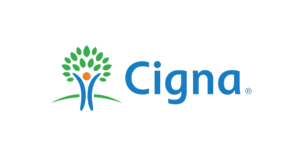


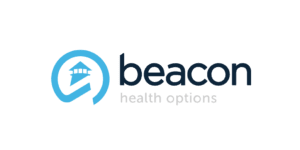




Here at Louisville Addiction Center, we have the tools necessary to help you reclaim your independence from benzodiazepine addiction. At Louisville, we know how destructive dependency can be to a person’s life.
We also know that through effective, evidence-based treatment, successful recovery can be achieved, leading to a lifetime of personal well-being. Do not hesitate any longer to reclaim your independence from addiction.
Contact our admissions team today, and take the first steps in your journey to lasting recovery.
Hear directly from those who have walked the path to recovery. Our patients’ stories highlight the compassionate care, effective programs, and life-changing support they’ve experienced. Let their journeys inspire you as you take your first steps toward healing.

Benzodiazepine addiction can feel overwhelming, especially when withdrawal symptoms make stopping feel impossible. If you or a loved one is struggling with dependence on medications like Xanax, Klonopin, Valium, or Ativan, professional medical support is critical. At Louisville Addiction Center, we provide medically supervised benzodiazepine detox and comprehensive addiction treatment in Louisville, Kentucky designed to ensure safety and long-term stability.
Attempting to stop benzodiazepines without clinical supervision can lead to seizures, severe anxiety, panic attacks, insomnia, and dangerous neurological complications. Our team provides structured taper protocols, 24/7 monitoring, psychiatric stabilization, and evidence-based therapy to help you safely regain control.
Recovery from benzo addiction is possible — and it starts with the right support system. Our admissions team is available around the clock to answer your questions, verify insurance coverage, and coordinate a safe admission.
You do not have to manage withdrawal or recovery alone.
Call Louisville Addiction Center now for confidential help. A safer, healthier future can begin today.
Relief can start today. Call 502-586-2433 for a confidential screening, or click Verify Insurance to see your coverage in under five minutes. When medically appropriate, same-day or next-day admission into Louisville Addiction Center’s benzodiazepine rehab continuum is available with no endless waitlists, no extra referrals. Take the first step toward a steadier, pill-free life right now.
Get Family Support Now
We understand addiction affects the whole family. Our comprehensive family program helps rebuild trust and restore relationships.
Weekly Family Therapy Sessions
Educational Workshops
Support Groups
Communication Skills Training

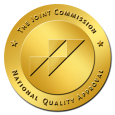
National Institute on Drug Abuse (NIDA). (2021, April 8). Benzodiazepines and opioids. Retrieved from https://nida.nih.gov/research-topics/opioids/benzodiazepines-opioids
Substance Abuse and Mental Health Services Administration (SAMHSA). (2024). Behavioral health treatment services locator. Retrieved from https://findtreatment.gov/
U.S. Food & Drug Administration (FDA). (2020, September 23). FDA requiring boxed warning updated to improve safe use of benzodiazepine drug class. Retrieved from https://www.fda.gov/drugs/drug-safety-and-availability/fda-requiring-boxed-warning-updated-improve-safe-use-benzodiazepine-drug-class
Mayo Clinic. (2022). Benzodiazepine withdrawal: Symptoms and treatment. Retrieved from https://www.mayoclinic.org
Centers for Disease Control and Prevention (CDC). (2022, December 20). Drug overdose deaths involving benzodiazepines. Retrieved from https://www.cdc.gov/nchs/nvss/vsrr/drug-overdose-data.htm
National Alliance on Mental Illness (NAMI). (2023). Anxiety disorders and benzodiazepines. Retrieved from https://www.nami.org




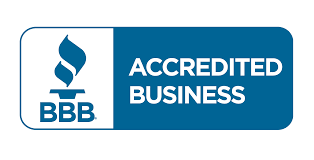




The information presented on Louisville Addiction Center website pages is intended solely for general educational and informational purposes related to addiction treatment, medical detoxification, rehabilitation services, and recovery support. This content is not intended to serve as medical advice, diagnosis, treatment planning, or a substitute for professional medical care. Substance use disorders are complex medical conditions that require individualized evaluation by qualified healthcare professionals.
Detoxification and rehabilitation needs vary widely based on the type of substance used, duration and frequency of use, physical health, mental health history, co-occurring disorders, and other individual factors. Information discussing detox timelines, withdrawal symptoms, medications, or treatment approaches is generalized and may not apply to every individual. Treatment decisions should always be made in consultation with licensed physicians, addiction specialists, or behavioral health providers.
If you or someone you love is experiencing a medical emergency — including but not limited to overdose, seizures, loss of consciousness, breathing difficulties, chest pain, suicidal thoughts, or violent behavior — call 911 immediately or go to the nearest emergency room. Louisville Addiction Center does not provide emergency medical services through this website, and no online content should delay urgent medical intervention.
Attempting to detox from alcohol, opioids, benzodiazepines, or other substances without medical supervision can be dangerous and potentially life-threatening. Withdrawal symptoms can be unpredictable and severe. Any detox-related information provided is for awareness only and should never replace professional medical oversight.
Information regarding insurance coverage, treatment costs, or payment options is provided for general guidance purposes only. Insurance benefits vary by carrier, policy, state regulations, and medical necessity determinations. Coverage information is not guaranteed and may change without notice. Louisville Addiction Center strongly encourages individuals to contact our admissions team directly to verify insurance benefits, eligibility, and coverage prior to making treatment decisions.
While reasonable efforts are made to ensure accuracy, Louisville Addiction Center makes no warranties regarding the completeness or timeliness of website content. Healthcare regulations, clinical standards, and insurance policies evolve regularly. Reliance on any information provided is at your own risk.
This website may include references or links to third-party resources for informational purposes. Such references do not constitute endorsements. Louisville Addiction Center is not responsible for external content, services, or policies.
Use of this website does not establish a provider-patient relationship. Contacting Louisville Addiction Center does not guarantee admission or treatment. Recovery outcomes vary and are never guaranteed.
The content available on Louisville Addiction Center pages is designed to provide educational information related to addiction, detoxification, rehabilitation, and recovery. This information should not be interpreted as professional medical advice or treatment recommendations.
Addiction treatment is highly individualized. Detox and rehab needs vary significantly based on health history, substance use patterns, and mental health considerations. Information provided is general and may not apply to all individuals.
If an emergency arises — such as overdose, severe withdrawal symptoms, or immediate danger — call 911 without delay. Online resources are not a substitute for emergency medical care.
Medical detox should always be conducted under professional supervision. Attempting detox without medical oversight can be dangerous.
Insurance information is provided as general guidance only. Coverage varies by plan and carrier. Louisville Addiction Center encourages all individuals to verify benefits directly with admissions staff.
Recovery outcomes are not guaranteed. Treatment effectiveness depends on many factors including engagement, clinical needs, and aftercare support.
References to external resources do not imply endorsement. Louisville Addiction Center is not responsible for third-party content.
Website use does not establish a provider-patient relationship.
National Institute on Drug Abuse (NIDA). (2021, April 8). Benzodiazepines and opioids. Retrieved from https://nida.nih.gov/research-topics/opioids/benzodiazepines-opioids
Substance Abuse and Mental Health Services Administration (SAMHSA). (2024). Behavioral health treatment services locator. Retrieved from https://findtreatment.gov/
U.S. Food & Drug Administration (FDA). (2020, September 23). FDA requiring boxed warning updated to improve safe use of benzodiazepine drug class. Retrieved from https://www.fda.gov/drugs/drug-safety-and-availability/fda-requiring-boxed-warning-updated-improve-safe-use-benzodiazepine-drug-class
Mayo Clinic. (2022). Benzodiazepine withdrawal: Symptoms and treatment. Retrieved from https://www.mayoclinic.org
Centers for Disease Control and Prevention (CDC). (2022, December 20). Drug overdose deaths involving benzodiazepines. Retrieved from https://www.cdc.gov/nchs/nvss/vsrr/drug-overdose-data.htm
National Alliance on Mental Illness (NAMI). (2023). Anxiety disorders and benzodiazepines. Retrieved from https://www.nami.org









Hear directly from those who have walked the path to recovery. Our patients’ stories highlight the compassionate care, effective programs, and life-changing support they’ve experienced. Let their journeys inspire you as you take your first steps toward healing.


Set yourself free from the struggles of addiction and co-occurring mental health disorders. Reach out to our treatment team in Louisville, Kentucky today.